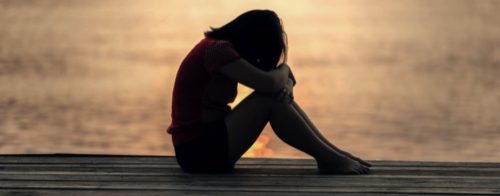
FOR the past six years young Canberra women have shown higher rates of psychological distress than young men from the ACT, according to a joint report released by Mission Australia and Black Dog Institute today (October 23).
Almost one in three young women in the ACT say they’re experiencing mental health challenges, compared with more than one in eight young men, according to a joint report released by Mission Australia and Black Dog Institute today (October 23).
Almost 17 per cent of 15-year-olds in the ACT experienced mental health issues, too, with an increase for 16-year-olds at almost 27 per cent, a jump with 17-year-olds at 47.7 per cent, and a slight drop for 18 and 19-year-olds (30.8 per cent).
The report shows that young women in the ACT are more than twice as likely than young men to experience psychological distress, and a much higher proportion of Aboriginal and Torres Strait Islander young people are meeting the criteria for psychological distress than their non-indigenous peers.
In 2018, more than four in ten (42.9 per cent) Aboriginal and Torres Strait Islander young people report experiencing psychological distress, compared with 25.3 per cent for non-indigenous young people.
On an Australian-wide level, the study found that stigma and embarrassment, fear and a lack of support were the three most commonly cited barriers that prevent young people from seeking help.
The top issues of personal concern for young Australians experiencing psychological distress were: coping with stress, mental health and school or study problems. There was also a notably high level of concern about other issues including body image, suicide, family conflict and bullying/emotional abuse.
Almost four times the proportion of young people with psychological distress reported concerns about suicide (35.6 per cent compared with 9.4 per cent of respondents without psychological distress).
In response to these findings, Mission Australia state director Nada Nasser said: “It’s deeply concerning that so many young people are experiencing psychological distress, and particularly troubling that nearly half of 17 year olds in the ACT report experiencing mental health challenges.”
“Youth mental health is a serious challenge here in the ACT and across the country, and it must be addressed as a priority,” she said.
“In light of these findings, I urge governments to listen to young people’s concerns about mental health and to give them opportunities to have a say in developing youth mental health services and tools, so that they are best suited to their needs.”
With the report confirming that young people experiencing psychological distress are less likely to seek help than those without mental health concerns, the Black Dog Institute director and chief scientist, Prof Helen Christensen said: “Global research tells us that over 75 per cent of mental health issues develop before the age of 25, and these can have lifelong consequences.”
“We are still in the dark as to why mental health and suicide risk has increased in our current cohort of youth, a finding that is not unique to Australia,” she said.
“Adolescence is a critical time in which to intervene, but we also know that young people experiencing psychological distress can be harder to reach. This report shows that young people in distress will seek help directly from the internet. As such, we need to continue to provide online and app-based tools that may be a key part of the solution. We also need to catch the problems upstream by prioritising early intervention and prevention efforts.”
Who can be trusted?
In a world of spin and confusion, there’s never been a more important time to support independent journalism in Canberra.
If you trust our work online and want to enforce the power of independent voices, I invite you to make a small contribution.
Every dollar of support is invested back into our journalism to help keep citynews.com.au strong and free.
Thank you,
Ian Meikle, editor





Leave a Reply